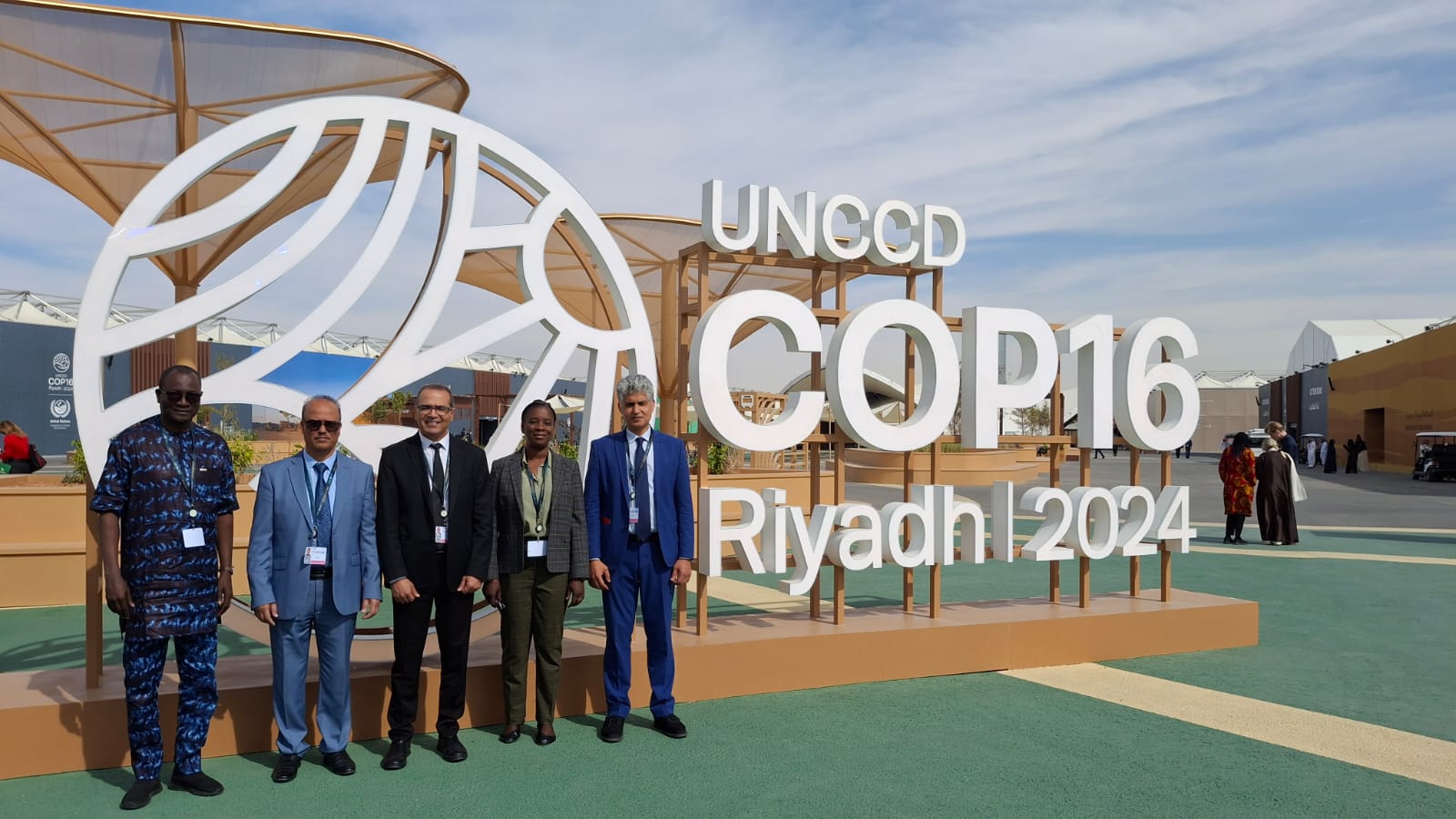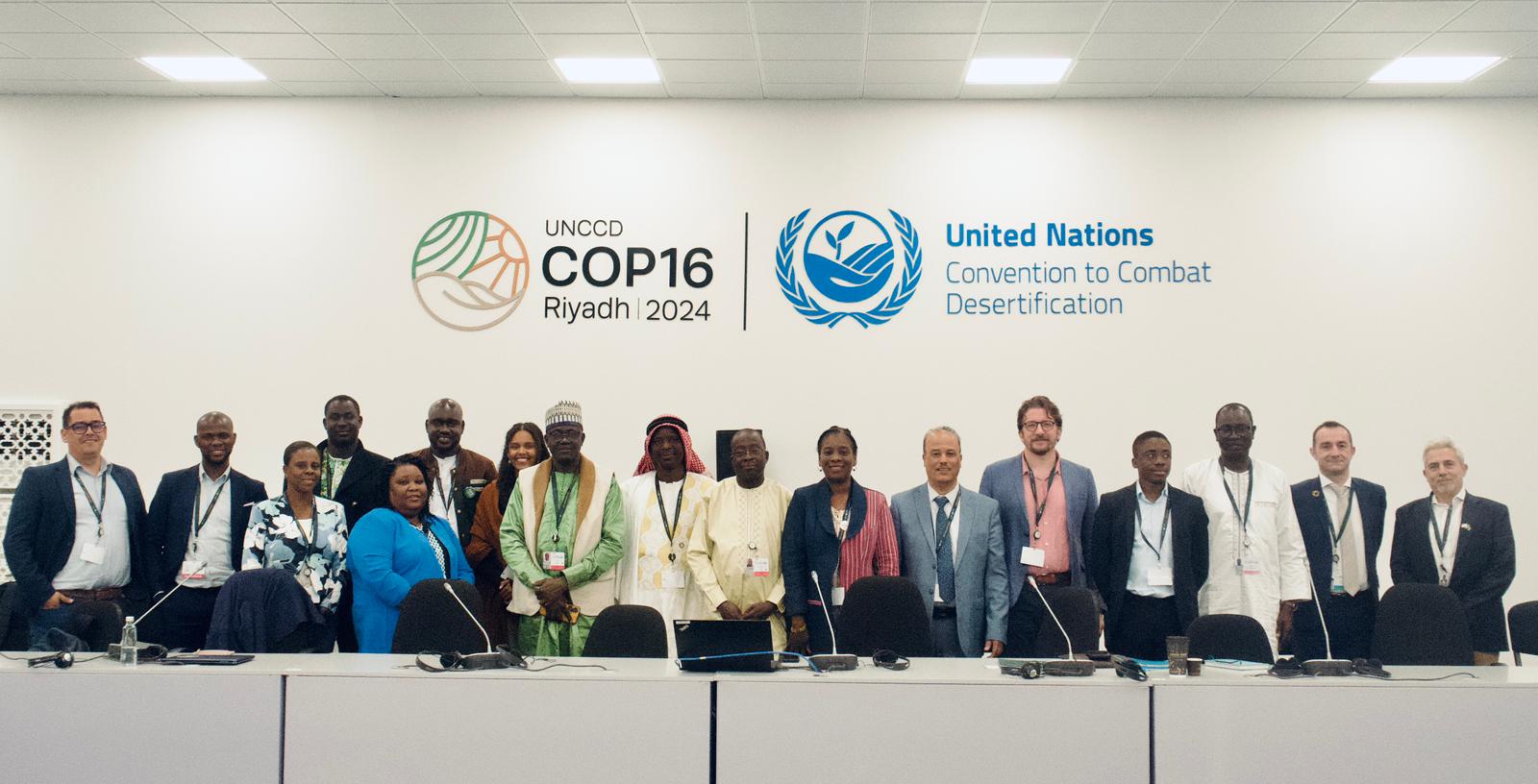27th Session of the OSS Strategic Orientation Committee, Tunis, January 28, 2025
Held on January 28, 2025 in Tunis, the 27th session of the Strategic Orientation…
The Senegalo-Mauritanian aquifer basin (BASM) shared by Gambia, Guinea Bissau, Mauritania and Senegal is the largest basin on the Atlantic margin of northwest Africa. With an area extending over 350,000 km2, the basin is home to a strategic water resource that is highly important to the populations.
However, the States are today facing several challenges such as salinization risks, the various sources of pollution or the impact of climate change on the variability of rainfall necessary for the recharge of the water tables.
In order to deal with this situation, a regional-level cooperation framework is being considered and put in place, under the Regional Working Group (RWG) that works on establishing trans-boundary cooperation and provide advice to the stakeholders with a view to setting a BASM long-term coordinated management mechanism.
The RWG was created in 2019 and engaged, since May 2020, in a joint project and an action plan design phase that had the Water Ministers validate the RWG regional program and sign the Ministerial Declaration on the Senegalo-Mauritanian Aquifer Basin. Such a Declaration came up with new statutes aimed at consolidating the assignment of the Working Group.
Thus, the OSS took its recent membership (September 2021) in the Regional Working Group (RWG) to take part, along with the OMVG, the OMVS and the 4 partner countries sharing the basin, namely Gambia, Guinea Bissau, Mauritania and Senegal, in the works of said Group, on July 1 in Tallinn (Estonia). It was represented by Mr. Mohamedou Baba Sy, Water Expert and Project Manager.
The works of the Group took place as a regional dialogue, facilitated and supported by the Geneva Water Hub, the Secretariat of the Convention on the Protection and Use of Transboundary Watercourses and International Lakes, and provided by the United Nations Economic Commission for Europe (UNECE), as well as by the International Groundwater Resources Assessment Center (IGRAC).
The meeting put special focus on establishing an institutional framework for cooperation and a data exchange regional framework for a coordinated management of the Senegalo-Mauritanian Aquifer, as well as consultation on the activities related to the SMAS*** project launched by the OSS and financed by the GEF/UNEP. Besides, the participants held discussions on the implementation plan of the SMAS project, this project is the result of years of commitment, and consists of collaborating with the countries in the definition and identification of actions to meet their development priorities.
In this regard, it is worth recalling that thanks to its 20-year cumulative experience in the sustainable management of trans-boundary groundwater resources in the Sahara and Sahel region, the OSS made a contribution in the improvement of knowledge and the establishment of different consultation frameworks. An experience acquired in the implementation of projects, such as the North Western Sahara Aquifer System in North Africa, shared by Algeria, Libya and Tunisia, and the Iullemeden Aquifer System (Mali, Niger, Nigeria), extended to Taoudeni-Tanezrouft (Algeria, Burkina Faso, Mali, Mauritania) in West Africa.
***SMAS project: “Enhancing the sustainable management of senegalo-mauritanian aquifer system to ensure access to water for populations facing climate change”.
Held on January 28, 2025 in Tunis, the 27th session of the Strategic Orientation…

The participation of the Sahara and Sahel…

OSS Side Event at COP16: Strengthening Resilience in the Sahel through Multi-…